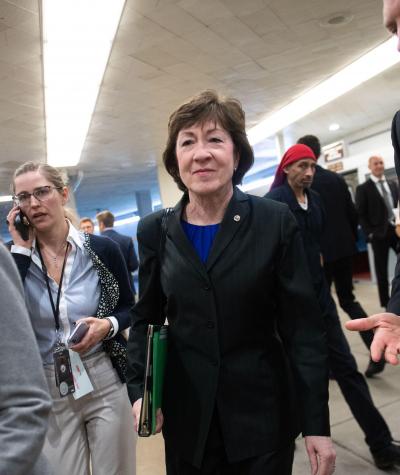Transparency is tremendously important for our democracy to function effectively. Voters should know who is spending money to influence their vote — which is why we have laws barring wealthy special interests from using secret campaign funds to buy favor with elected officials.
Federal campaign finance laws protect voters from a corrupt, pay-to-play culture by requiring that all political contributions are openly disclosed.
These transparency laws prohibit anyone from using “straw donors” to make contributions — i.e., giving money to a candidate or PAC through an intermediary or conduit used to conceal the true source of the funds — and separate restrictions bar federal contractors from making political contributions.
These protections are meant to keep our elections safe from secret spending and corruption, which marginalize everyday Americans' voices in the democratic process. Yet poor enforcement by the Federal Election Commission (FEC) — the agency responsible for implementing our election laws — has allowed wealthy special interests to dominate our elections.
But a recent victory illustrates that robust enforcement of campaign finance laws can hold violators accountable and sends an important signal to others who might be thinking of using the same corrupt tactics to get ahead.
In 2020, Campaign Legal Center (CLC) identified an apparent straw donor scheme and filed a complaint with the FEC urging it to investigate and take action.
CLC’s complaint alleged that the “Society of Young Women Scientists and Engineers, LLC” (SYWSE) was actually a pop-up shell company used to make a $150,000 straw donor contribution to a super PAC supporting the reelection campaign of Susan Collins, a U.S. senator for Maine.
While that complaint was pending with the FEC, the FBI and Department of Justice (DOJ) began investigating. They discovered that SYWSE was, in fact, a shell company used by Navatek, a military technology company based in Hawaii and an active federal contractor, to make illegal political contributions supporting Collins.
Collins had previously supported Navatek’s contract work with the government (the complaint did not allege involvement by Collins or her campaign).
The DOJ charged three Navatek executives with criminal violations based on this straw donor scheme, and all three eventually pleaded guilty. Navatek’s CEO, Martin Kao, was sentenced to a lengthy prison term (on charges that included wire fraud unrelated to the straw donor contribution scheme).
That might have been the end of this sordid story, and of CLC’s complaint. Yet in an unusual and rare development, in February 2025, the FEC fined PacMar Technologies (the rebranded Navatek) $325,000 — more than double the amount of the unlawful contribution — for knowingly and willfully violating the law.
FEC enforcement of campaign finance law is a regrettably rare phenomenon, and it’s exceedingly unusual for the FEC to impose a penalty that is more than a proverbial slap on the wrist.
In a more typical, and deeply disappointing development, the FEC declined to impose any accountability at all on 1820 PAC, the super PAC that received and spent Navatek’s money. Indeed, despite evidence of 1820 PAC’s knowledge of the scheme, the FEC dismissed the allegations against it and allowed it to terminate without ever facing any consequences.
1820 PAC also never refunded or disgorged (i.e., paid to the U.S. Treasury) the illegal $150,000 contribution from Navatek, as the law requires — and as the FEC acknowledged in a toothless “reminder” letter it sent to the super PAC in February 2025 — long after the super PAC had already spent all of the money it raised to help Senator Collins win her 2020 reelection bid.
The super PAC’s failure to refund Navatek’s illegal contribution shows how important it is to have an FEC willing to pursue accountability.
CLC petitioned the FEC in 2022 to promulgate new rules that would clarify and expand the agency’s power to require disgorgement of illegal contributions in situations like this. That petition for rulemaking remains pending with the FEC, which has done little to advance it.
But perhaps most disappointing of all, despite fining PacMar for its role in the Navatek straw donor scheme, the FEC simultaneously announced that such accountability was not indicative of a shift toward consistently enforcing the law.
Instead, the FEC released a statement providing that, going forward, similar allegations would be treated as apparent reporting violations — essentially an accounting or compliance error — even in the face of evidence of a scheme to unlawfully evade disclosure requirements.
Holding PacMar accountable for its campaign finance law violations is an important win for CLC and others fighting for elections that are representative of the public will, not special wealthy interests.
But the lack of accountability for 1820 PAC and the unwillingness of the FEC to pursue further cases like these underscores how we don’t just need better enforcement — we need better laws.
To learn more about straw donor schemes, check out what Campaign Legal Center is doing to bring this secret spending to light and demand accountability. Keep up with our future work to protect elections from secret spending by subscribing to our newsletter.

